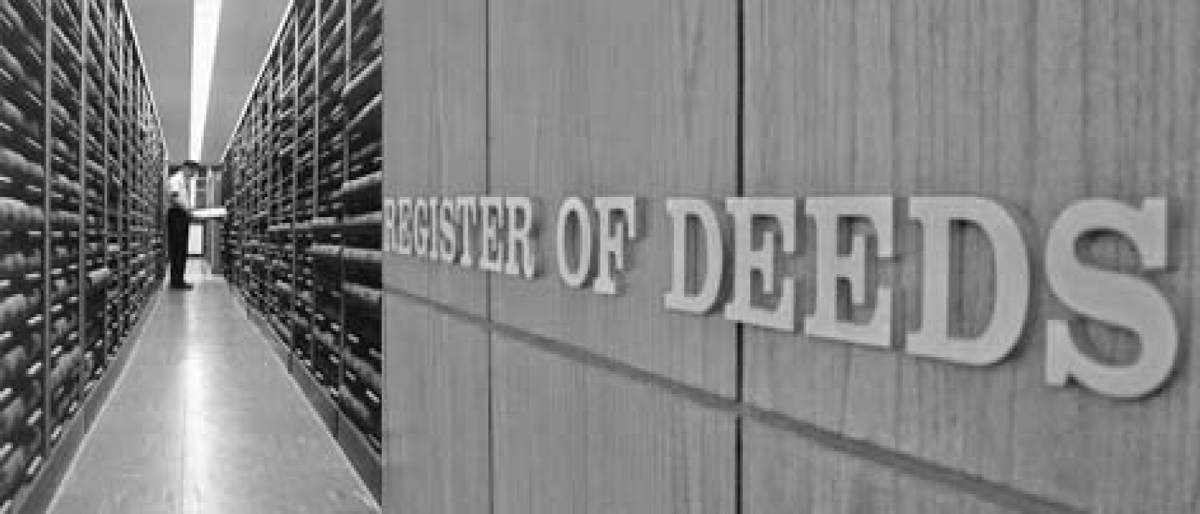
You are NOT on the Coles County official website, you are on Deeds.com, a private website that is not affiliated with any government agency.
The County Clerk and Recorder is responsible for maintaining property records in Coles County.
Recording Fees
ALL RECORDING FEES ARE $69 WITH THE NOTED EXCEPTIONS:
DOCUMENTS THAT ARE EXEMPT FROM RENTAL HOUSING =$51
Affidavit w/o legal
Articles of incorporation
Memorandum of judgment
Release of memorandum of judgment
City ordinance
Power of attorney w/o legal description
Probate
Cemetery deed
Birth/death certificate
State liens/release of state liens = $11
Federal liens/release of federal liens =$18
NON STANDARD DOCUMENTS = $84
Any document that creates a division of land (plat act will be marked "b")
Any document making specific reference to more than 5 tax parcel id #s
Any document making specific reference to more than 5 document #s
SUBDIVISION PLATS = $84
ALL UCCS (NEW, AMENDED, TERM, ETC) = $51
COPIES = $1 Per Page / Certified = $10 per document
Include a self-addressed stamped envelope with recorded documents.
Revenue tax stamp is payable by a separate check from recording fees. Recording fees and revenue tax stamp are payable by cash, check, or money order. Checks can be made payable to the Coles County Recorder.
County recording fees are subject to change without notice. We recommend to contact the local recorder's office to verify this information.
Document Formatting Requirements
The Coles County Recorder is responsible for recording and maintaining real estate documents such as deeds, mortgages, and other instruments pertaining to real property located in the county. Requirements, as outlined in the Illinois Compiled Statutes, must be met before recordation can take place.
All deeds, mortgages, and other instruments of writing which are authorized to be recorded shall take effect and be in force from and after the time of filing the same for record, and not before, as to all creditors and subsequent purchasers, without notice; and all such deeds and title papers shall be adjudged void as to all such creditors and subsequent purchasers, without notice, until the same shall be filed for record.
1. According to the Coles County Recorders webpage, a standard document should be submitted on white 8.5x11 inch paper with a 3x5 inch blank space in the upper right corner. Side and bottom margins should be at least an inch. The maximum size page accepted is 8.5x14 inches. Printing must be legible.
2. If it is necessary to include an attached rider with a deed, the rider shall be permanently attached as an additional page on the back of the deed.
3. The names of the parties to the conveyance should be typed or printed beneath signatures.
4. A completed Plat Act Affidavit is required to be submitted with a conveyance whenever a metes and bounds description is used in the legal description, when roadway easements and right-to-travel (ingress and egress) are designated, or when a division of land five acres more or less is noted on the deed transfer. This can be downloaded from the Coles County Clerks website. When fees are assessed, the affidavit counts as one page of the document.
5. All deeds, mortgages, or other instruments in writing must have a certificate of acknowledgement in order to be recorded. All signatures must be acknowledged.
6. Whenever a deed is executed, the name and address of the owner (or owners) to whom subsequent tax bills should be sent should be endorsed on the instrument.
7. The grantees name and mailing address is required on all deeds.
8. Provide a legal description of the real property on the deed that is to be recorded. Whenever a metes and bounds legal description is used, it should contain the section, township, and range with an identifiable point of beginning. Do not tape legal descriptions on to documents
9. The name and address of the person who prepared the deed should be stated at the conclusion of the document.
The PTAX 203 and any required documents must be filed with the deed or trust document or an exemption must be noted on the original deed or trust document at the County Recorders office in the county where the property is located. The form should be filed for all real estate transfers except those qualifying for an exempt status under a, c, d, e, f, g, h, i, j, or l.
The information requested on this form is required by the Real Estate Transfer Tax Law. All parties involved in the transaction must answer each question completely and truthfully.
County offices and the Illinois Department of Revenue use this form to collect sales data and to determine if a sale can be used in assessment ratio studies. This information is used to compute equalization factors, which are used to help achieve a state-wide uniform valuation of properties based on their fair market value.